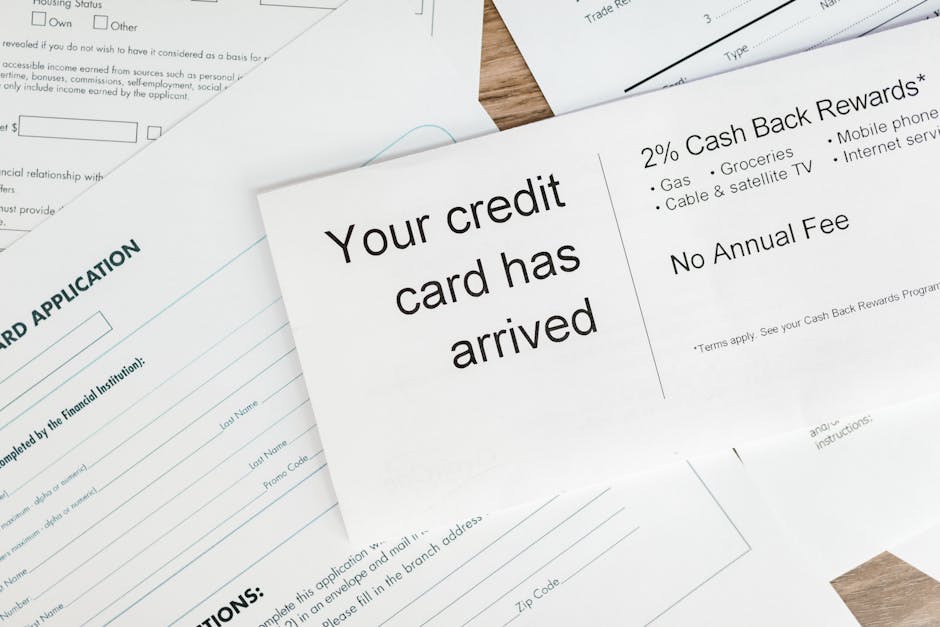Complete Guide on Managing Debt Successfully
Managing debt can be a daunting task, but with the right strategies, it can be done. This Complete Guide on Managing Debt Successfully is designed to provide you with effective techniques and insights that will help you regain control over your financial life. If you’re feeling overwhelmed by your debt situation, keep reading to discover actionable tips and resources that can empower you to take charge.
Understanding Your Debt: A Key Element of the Complete Guide on Managing Debt Successfully
The first step in this Complete Guide on Managing Debt Successfully is understanding the types of debt you have. Identifying the nature of your debt allows you to devise a tailored repayment plan. Here are the common types of debt you may encounter:
- Credit Card Debt: Often carries high interest rates and can accumulate quickly if not managed.
- Student Loans: These loans can be federal or private, with varying repayment options and interest rates.
- Personal Loans: Unsecured loans that often come with fixed repayment terms.
- Mortgage Debt: Debt taken on to purchase real estate, typically has lower interest rates compared to credit card debt.

Creating a Budget: A Core Strategy in the Complete Guide on Managing Debt Successfully
A vital part of the Complete Guide on Managing Debt Successfully is creating a budget. A budget helps you track your income and expenses, ensuring that you can allocate funds towards your debt repayment. Here’s how to create an effective budget:
- List Your Income: Document all sources of income, including salary, freelance work, or passive income.
- Track Your Expenses: Write down all monthly expenses, categorizing them into essentials and non-essentials.
- Set Debt Repayment Goals: Determine how much you can allocate towards debt repayment each month.
- Adjust as Necessary: Revise your budget monthly based on changes in your income and expenses.
By adhering to a budget, you can ensure that your debt repayment is not only possible but prioritized. This approach is a central theme in our Complete Guide on Managing Debt Successfully.

Utilizing Debt Reduction Strategies in the Complete Guide on Managing Debt Successfully
Another key area of focus in this Complete Guide on Managing Debt Successfully is employing effective debt reduction strategies. Two popular methods include:
- The Snowball Method: Pay off your smallest debts first while making minimum payments on larger debts, leading to quick wins and motivation.
- The Avalanche Method: Prioritize debts with the highest interest rates, saving money on interest payments over time.
Both strategies can be effective, but the best approach depends on your personal financial situation and psychological preference.

Seeking Professional Help: An Essential Component of the Complete Guide on Managing Debt Successfully
If your debt feels unmanageable, consider seeking professional help. Credit counseling services can provide the guidance needed for creating a comprehensive debt management plan. They can also negotiate with creditors on your behalf, potentially lowering your payments.
Remember, the Complete Guide on Managing Debt Successfully is not just about managing what you owe; it’s about enhancing your overall financial well-being. Taking proactive steps today can lead to a brighter financial future.
In summary, managing debt effectively involves understanding your financial landscape, creating a realistic budget, employing sound debt reduction strategies, and knowing when to seek professional assistance. By following the insights laid out in this Complete Guide on Managing Debt Successfully, you’ll be well on your way to regaining control over your finances. Take action today by developing your personalized debt management strategy to pave the way for a debt-free future.
Managing Debt: A Comprehensive Guide to Financial Freedom
In today’s fast-paced world, successfully managing debt can feel like a daunting task. However, with the right strategies and information, you can take control of your finances and pave the way toward financial freedom. This article on managing debt: a comprehensive guide to financial freedom will help you explore practical tips, resources, and actionable steps to regain your financial stability.
Understanding Debt: The First Step to Managing Debt
To effectively manage debt, it’s essential first to understand what it is and how it affects your overall financial health. Debt typically falls into two categories: secured and unsecured debt. Secured debt is backed by assets (like a mortgage), while unsecured debt (like credit cards) is not. Here are some key considerations:
- Assess your total debt: Include all types of loans and credit.
- Calculate your debt-to-income ratio: A crucial indicator of your financial health.
- Prioritize your debts: Focus on high-interest debts first.

The Importance of Creating a Budget in Managing Debt
One of the most effective strategies for managing debt: a comprehensive guide to financial freedom involves crafting a detailed budget. A budget helps you track your income and expenses, allowing you to allocate funds toward debt repayment. Here’s how to create a budget that works for you:
- List all sources of income: Ensure you account for every dollar you receive.
- Document all monthly expenses: Include fixed costs like rent and variable costs like groceries.
- Identify discretionary spending: Cut back on non-essential expenses to free up cash for debt repayment.
- Allocate funds for debt repayment: Set aside a specific amount dedicated to paying off debts.
By following these steps, you can create a budget that not only helps you manage your debt but also supports your journey to achieving financial freedom.

Techniques for Effectively Managing Debt
There are several strategies you can employ to manage your debt effectively. Here are some popular techniques:
- The Snowball Method: Pay off your smallest debts first to gain momentum.
- The Avalanche Method: Focus on paying off the debts with the highest interest rates first.
- Debt Consolidation: Combine multiple debts into a single loan with a lower interest rate.
- Negotiate with Creditors: Sometimes, creditors are willing to work with you to lower rates or extend repayment terms.
These methods can ease the burden of managing debt and help you visualize your progress toward financial freedom.

Seeking Professional Help for Managing Debt
If you find yourself overwhelmed by debt, it might be time to consider professional help. Credit counseling services can assist you in creating a personalized debt management plan. They can provide guidance on budgeting and even negotiate with creditors on your behalf. Research local agencies and check their credentials to ensure they’re reputable.
Being proactive in managing debt is crucial to achieving financial freedom. Don’t hesitate; take step towards regaining control over your finances today.
In conclusion, managing debt: a comprehensive guide to financial freedom outlines the essential steps necessary for overcoming debt challenges. By understanding your debt, creating a solid budget, employing effective strategies, and seeking support when needed, you can navigate your way to a more secure financial future. Take charge now; review your financial situation, make a plan, and commit to your journey toward financial freedom.
Effective Strategies for Managing Debt: A Comprehensive Guide
Are you feeling overwhelmed by financial burdens? Understanding and implementing effective strategies for managing debt can empower you to reclaim control over your finances. In this article, we will explore proven methods, practical tips, and insights to help you navigate the complexities of debt management. Read on to discover how to transform your financial situation and reduce stress.
Understanding Debt: The First Step in Effective Strategies for Managing Debt
Before diving into strategies, it’s essential to grasp what debt truly means for your financial health. Debt can be categorized into two main types: secured and unsecured. Secured debt, such as mortgages, is backed by collateral, while unsecured debt, like credit cards and personal loans, carries no collateral. Recognizing the nature of your debts is the first step towards effective management.
Here are critical aspects of understanding your debt:
- Know the total amount owed across all accounts.
- Identify interest rates on each debt.
- Track payment due dates to avoid late fees.

Effective Strategies for Managing Debt: Budgeting and Organization
Once you have a clear picture of your debt, the next step is prioritizing budgeting and organization as part of your effective strategies for managing debt. A well-planned budget can be your strongest ally in tackling debt head-on. Here’s how to create an efficient budget:
- Track your income and expenses diligently.
- Identify non-essential spending that can be reduced or eliminated.
- Allocate a specific portion of your income towards debt repayment each month.
By following these steps, you can set a solid foundation for achieving financial freedom. Additionally, maintaining organization through tools like spreadsheets or budgeting apps can significantly enhance your ability to monitor and manage debt effectively.

Communication and Negotiation: Essential for Effective Strategies for Managing Debt
Don’t hesitate to communicate with your creditors as part of your effective strategies for managing debt. Many people overlook this step, yet it can lead to more manageable repayment terms. Here are some ways to approach this:
- Request lower interest rates; many creditors are willing to negotiate.
- Explore options for debt consolidation to combine multiple debts into one payment.
- Inquire about hardship programs if you’re struggling to meet payments.
Establishing open communication can often lead to beneficial arrangements that reduce your financial burden. Remember, creditors appreciate proactive clients who are committed to repaying their debts.

Leveraging Professional Help for Effective Strategies for Managing Debt
When your debt feels unmanageable, seeking professional assistance can also be one of your effective strategies for managing debt. Financial advisors and credit counseling services can offer tailored solutions, helping you create a more sustainable plan. They can provide insights into debt management plans (DMPs), which may involve structured repayment terms negotiated on your behalf.
Consider the following when seeking professional help:
- Choose certified and reputable agencies.
- Understand the fees involved and ensure their services fit your budget.
- Verify their track record with former clients.
Professional guidance can not only alleviate the immediate pressure of debt repayment but also teach valuable techniques for financial stability long-term.
Implementing effective strategies for managing debt requires commitment and perseverance. By understanding your debt, creating a detailed budget, communicating with creditors, and possibly seeking professional guidance, you can navigate towards a debt-free future. The steps taken today can lay the groundwork for a financially secure tomorrow. Don’t wait—start taking action now and empower yourself to conquer debt efficiently.
The Essential Guide to Managing Debt Wisely
Managing debt wisely is crucial for achieving financial stability and peace of mind. In today’s fast-paced world, many individuals find themselves grappling with various forms of debt, whether from loans, credit cards, or mortgages. Understanding the nuances of debt management can lead to better financial decisions and a more secure future. In this The Essential Guide to Managing Debt Wisely, we will explore effective strategies to help you regain control over your finances.
Understanding Debt: The First Step in the Essential Guide to Managing Debt Wisely
Before diving into specific strategies, it’s essential to understand the different types of debt you may encounter. Debt can broadly be categorized into two main types: secured and unsecured debt. Secured debt, like mortgages and car loans, is backed by collateral, while unsecured debt includes credit cards and personal loans that are not tied to any asset. Recognizing the nature of your debt is the first step in your journey to managing it wisely.
Additionally, it’s important to be aware of the interest rates and terms associated with each type of debt. High-interest debt can quickly spiral out of control, making repayment more challenging. This insight will guide your strategies in the Essential Guide to Managing Debt Wisely.

Effective Strategies for Managing Debt Wisely
To tackle your debt effectively, consider utilizing the following strategies:
- Create a Budget: Establish a monthly budget that outlines your income, expenses, and debt payments. This will give you a clear picture of your financial situation.
- Prioritize High-Interest Debt: Focus on paying off debts with the highest interest rates first, while making minimum payments on others. This method, known as the avalanche method, saves you money on interest in the long run.
- Consider Debt Consolidation: If you have multiple debts with varying interest rates, consolidating them into a single loan with a lower interest rate can simplify your payments and reduce overall costs.
- Utilize Windfalls Wisely: Any bonuses, tax refunds, or unexpected income should be directed towards paying down debt rather than spending it on non-essentials.
- Seek Professional Help: If your debt feels overwhelming, consider consulting a financial advisor or credit counseling service to create a tailored plan for your situation.
Building Healthy Financial Habits as Part of the Essential Guide to Managing Debt Wisely
Beyond strategies aimed at immediate debt reduction, building long-term financial habits is essential. Start by establishing an emergency fund to cover unexpected expenses, which can prevent you from taking on additional debt. Additionally, regularly reviewing and adjusting your budget will help keep your spending in check and your debt under control.
Another critical component is to foster a mindset of financial responsibility. Educate yourself about personal finance through books, workshops, and online resources. The more informed you are, the more equipped you will be to make wise financial choices that will help you manage debt effectively.
Leveraging technology can also be beneficial. Numerous budgeting apps are available to help track your expenses, set savings goals, and remind you of upcoming payments, further supporting your journey in the Essential Guide to Managing Debt Wisely.
Taking Action Now for a Debt-Free Future
Incorporating these valuable insights into your financial practices will dramatically enhance your ability to manage debt wisely. The Essential Guide to Managing Debt Wisely emphasizes that the sooner you start addressing your debt situation, the better your financial future will be. Don’t hesitate to take the first step—set a budget today and begin prioritizing your debt payments.
By following this guide, you’re not just working on paying off debt; you’re paving the way for a healthier financial life. Remember, managing debt is a journey that takes time, patience, and commitment. If you’re looking to learn more about effective debt management, consider reaching out to financial experts or exploring educational resources.
Achieving Success in Managing Debt: Tips and Tools
In today’s fast-paced world, managing debt efficiently is crucial for financial stability and peace of mind. With mounting expenses and unexpected emergencies, many individuals find themselves overwhelmed by their financial obligations. “Achieving Success in Managing Debt: Tips and Tools” can provide the strategies and resources you need to regain control over your financial situation. In this article, we’ll explore practical tips and effective tools to help you manage debt successfully, making your journey to financial freedom more achievable.
Understanding Your Debt: The First Step in Achieving Success in Managing Debt
Before taking any action, it’s essential to understand the nature of your debt. Achieving success in managing debt begins with a comprehensive assessment of what you owe. Start by listing all your debts, including credit cards, student loans, and personal loans. For each entry, note the interest rates, minimum payments, and total amounts due. This will give you a clear picture of your financial commitments and help you prioritize them effectively.
Creating a Budget: A Key Tool for Achieving Success in Managing Debt
One of the most effective tools in your arsenal is a well-structured budget. A budget allows you to track your income and expenses, ensuring that you allocate sufficient funds to pay down your debt. Here are some actionable tips to create a successful budget:
- Track Your Income: Record all sources of income, including salaries, bonuses, and side jobs.
- List Your Expenses: Note fixed expenses (like rent) and variable expenses (like groceries) to understand where your money goes.
- Set Limits: Determine how much you can afford to spend in each category, especially in discretionary spending.
- Plan for Debt Payments: Allocate a portion of your income specifically for debt repayment each month.
By adhering to a budget, you can make informed decisions about your spending and ensure that debt repayment is a top priority.
Utilizing Financial Tools for Achieving Success in Managing Debt
Alongside budgeting, various financial tools and apps can help streamline your debt management process. Here are some tools to consider:
- Debt Snowball Calculator: This tool helps you prioritize debts from smallest to largest, motivating you to pay off debts quickly.
- Mobile Budgeting Apps: Apps like Mint or YNAB can assist you in tracking expenses and managing your budget on-the-go.
- Debt Consolidation Services: Consider working with reputable services that can help simplify your payments and potentially lower your interest rates.
Integrating these financial tools into your debt management strategy can lead to significant improvements in your ability to achieve success in managing debt.
Staying Motivated on the Journey Towards Achieving Success in Managing Debt
Managing debt can be a long and sometimes overwhelming process. It is vital to stay motivated and celebrate small victories along the way. Set realistic goals for debt repayment, and mark milestones when you pay off each debt. Surround yourself with supportive friends or family members who understand your goals and can encourage you to stay the course.
Additionally, educate yourself about personal finance through books, podcasts, or blogs. Knowledge is a powerful motivator and can provide you with new strategies for managing your financial life more effectively.
Ultimately, achieving success in managing debt is a journey that involves careful planning, disciplined execution, and the use of effective tools. By following the tips outlined in this article, you can take positive steps towards regaining control of your finances and reducing your debt burden.
Start today by assessing your debt, creating a budget, and utilizing available financial tools. The path to achieving success in managing debt is within your reach—take action and watch your financial confidence grow!

0 Comments